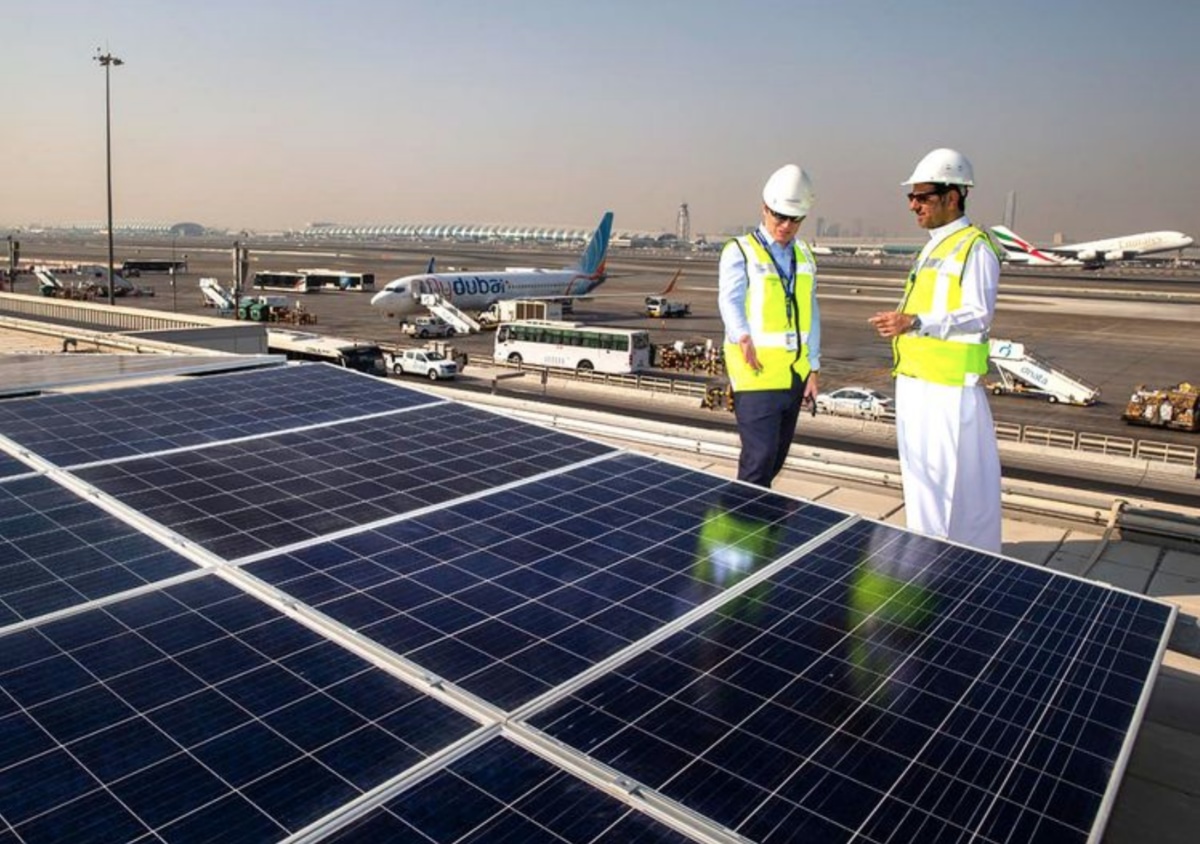NEWSLETTER
In Conversation: Holly Boyd-Boland, Virgin Atlantic

Our Sustainability in the Air podcast is back for Season 3! And for the first time, we are featuring the CEO of an airport, not an airline. To launch the brand new season, SimpliFlying CEO Shashank Nigam, spoke to Dubai Airports CEO Paul Griffiths.
DXB’s green credentials are impressive. Their latest initiatives include the recently announced commitment to keep 60 percent of all waste from Dubai International (DXB) from entering landfills by the middle of 2023.
Paul, who is Head of both DXB and Dubai World Central (DWC) airports, tells Shashank that a net zero target is not the aim: but rather, it’s about the thousands of small initiatives that reduce the cumulative energy footprint.
In a nutshell, Griffith’s sustainability strategy can be summarised as: Poignant, pragmatic and Practical.
The airport recently won the Best Aviation Sustainability Programme, (Environment pillar) at the Sheikh Mohammed bin Rashid Global Aviation Awards for its ongoing efforts in helping to develop a more sustainable global aviation industry, and is presently entering its fourth year since installing a solar farm of 15,000 photovoltaic panels on top of the building at Terminal 2 – the biggest of its kind in the Middle East – which reduces the airport’s total energy costs by 29%.

Green initiatives at the airport have included the use of energy efficient fittings, the optimisation of cooling systems and the installation of thousands of LED bulbs.
They also have a project to replace the ground service vehicle fleet with electric and hybrid vehicles. In addition, the airport operator has banned the use of single-use plastics at Dubai International and Dubai World Central (DWC) since Jan 1, 2020.
Moreover, given that Dubai airport is a round-the-clock operation, food and beverage outlets are also part of the waste chain.
Griffith mentions DXB’s program to reduce landfill waste by 60%. Essentially, by mid-2023, 60% of waste produced at DXB will be moved away from landfills. Currently, the airport is also converting 100% of all cooking oil produced in their food and beverage outlets into biodiesel.
Paul tells Shashank that his agenda is action-oriented and that he’s far more interested in what they did yesterday collectively, to make sure today is more sustainable than the day before.
He and his team also scan the globe and look for best practices, whether it’s on the West Coast of the USA, Dallas Fort Worth or Scandinavia for solutions and ways to improve and increase efficiency.
“Sustainability is such an important thing”, he says. “Anyone who has come up with a solution, has a duty of care to the world to share it.”
When asked about climate activism, he asserts that reduction and consumption is part of personal consciousness, “We are all consumers, and we all have to do our very best to reduce our own individual carbon footprint.”
In the final section, Paul explains how he leads by example and is passionate about his own reduction measures.
He tells Shashank how his home in the U.K. is completely hydrocarbon free and electricity is generated from solar energy. Taking steps to “live off the grid” is an arduous endeavour and gives us hope that slowly but surely, every small measure will lead us to a greener future.
Our Sustainability in the Air podcast is powered by SimpliFlying which has been helping build trust in travel for over a decade.
Season 3 is brought to you by our sustainability partners, Cirium and CarbonClick.
Emirates successfully tests flight powered by sustainable aviation fuel (The National)
United Airlines forms $50 million sustainable fuel joint venture (Chicago Business Journal)
British Airways Partners with Travel Places to Launch Sustainable Aviation Fuel Fund (Travel Radar)
Frontier Airlines Names Plane in Honor of Sustainable Aviation Pioneer Maria Della Posta (Simple Flying)
Alaska Airlines removes plastic cups from its services (Economy Class and Beyond)
© 2022 SimpliFlying Pte. Ltd.